We couldn’t find anything for that search. But we’d love to know what you’re looking for — feel free to drop a comment on any post and tell us what you’d like to see next.
We couldn’t find anything for that search. But we’d love to know what you’re looking for — feel free to drop a comment on any post and tell us what you’d like to see next.
Welcome to Luang Prabang, literally meaning “Royal Buddha Image”. Here, the scent of frangipani floats through the air, monks glide silently in saffron robes, and the Mekong River blushes under the setting sun. Nestled at the confluence of the Mekong and Nam Khan rivers, this UNESCO World Heritage town is a living museum of Lao heritage, French elegance, and Buddhist serenity.
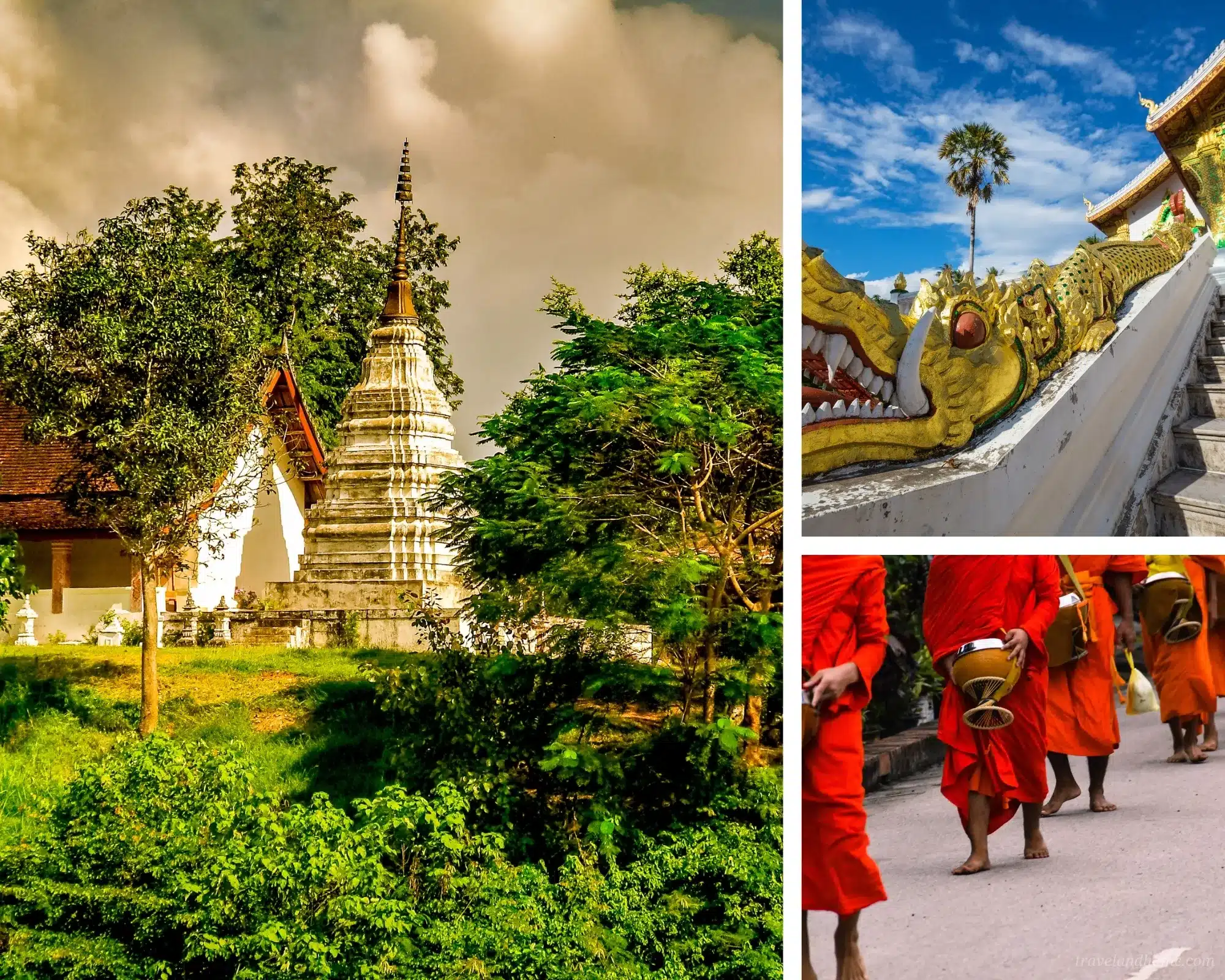
Luang Prabang earned its UNESCO status in 1995 for a reason:
Traditional Lao wooden homes sit gracefully beside French colonial villas with pastel shutters and wrought-iron balconies.
The townscape is a rare fusion of 19th–20th century European urban planning and centuries-old Lao design, preserved with reverence.
Strolling its quiet lanes feels like flipping through a history book—except with better coffee and more golden rooftops.
The country’s official name is the Lao People’s Democratic Republic. “Lao” is the native term used by locals to describe their language, ethnicity, and cultural heritage.
The term “Laos” was introduced by the French during colonial rule. They added the “s” to pluralize the region’s multiple kingdoms—Luang Prabang, Vientiane, and Champassak. In French, the “s” is silent, but English speakers kept it and pronounced it, which led to the modern usage of “Laos” as the country name.
🏰 A UNESCO Treasure
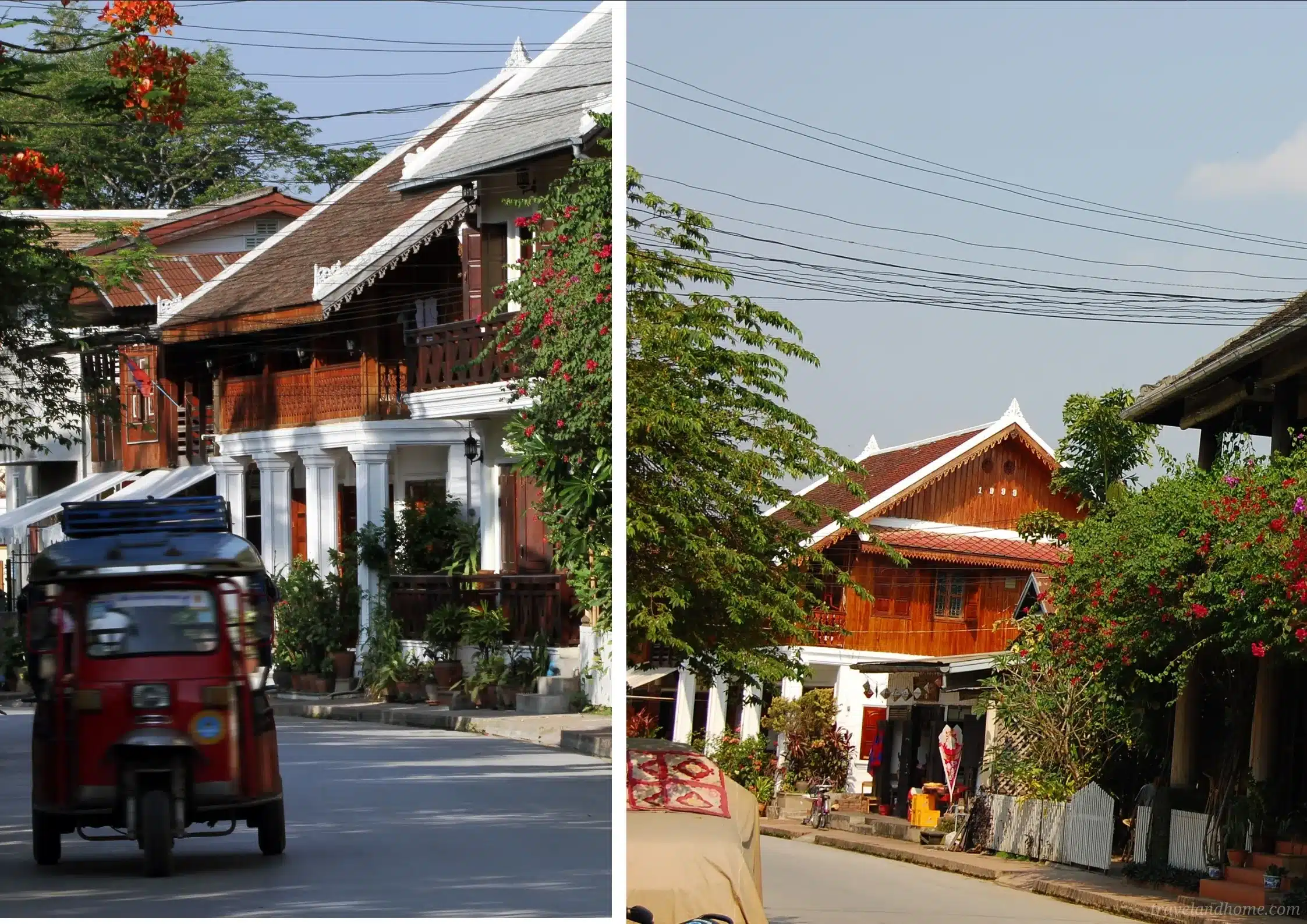
Often described as a city of temples, Luang Prabang is home to more than 30 historic wats. Here’s a taste of what to expect…
Wat Xieng Thong: The crown jewel, with sweeping roofs and intricate mosaics.
Wat Mai Suwannaphumaham: Known for its gilded façade and tranquil courtyard.
Wat Pa Phon Phao: A hilltop stupa offering panoramic views and peaceful vibes.
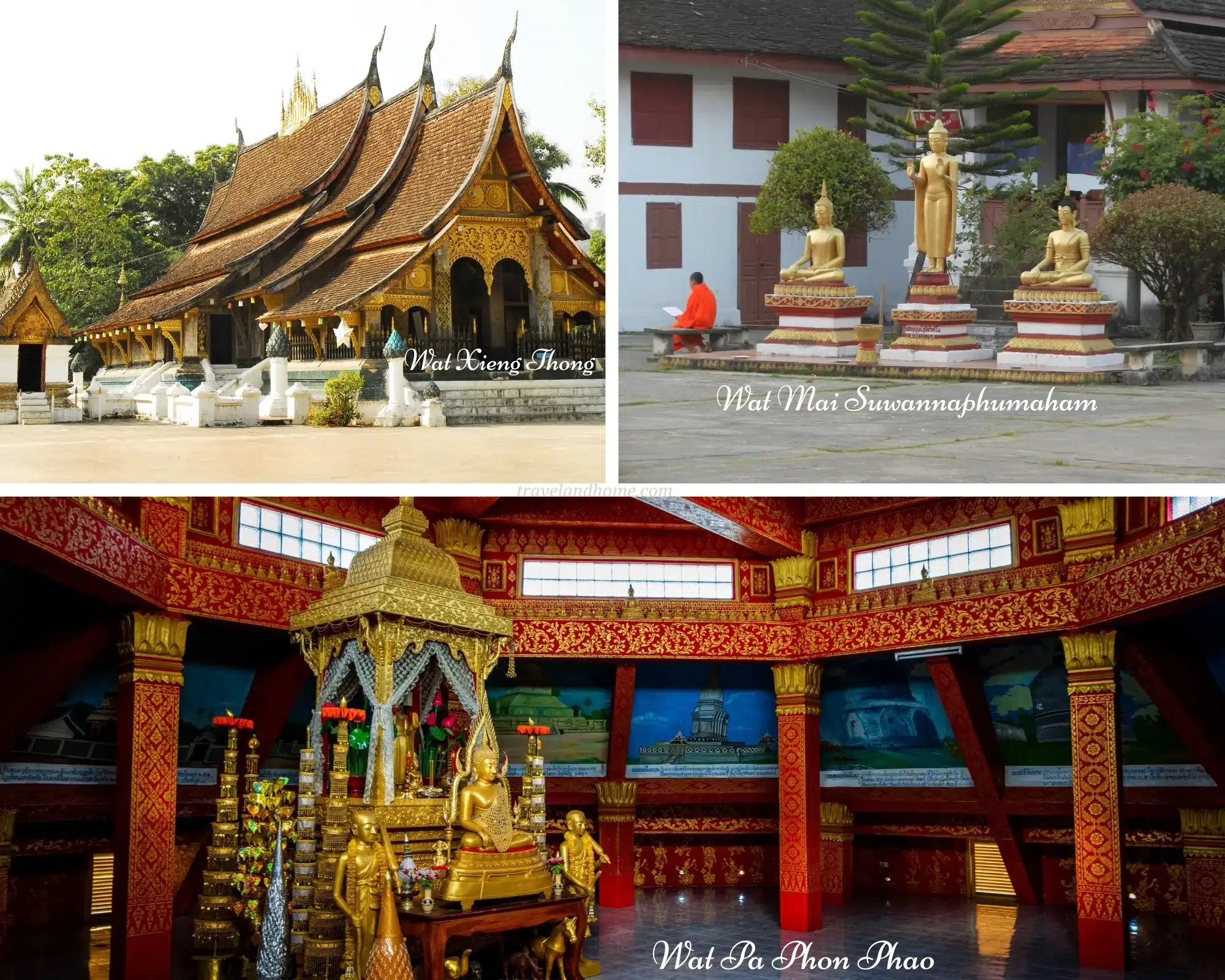
💡 Travel Tip:
Wake up early—really early—and you’ll witness the soul of Luang Prabang. Many temples are still active monasteries, where young novices study, meditate, and live in harmony with tradition.
As the day winds down, the town glows in golden hour magic:
Grab a seat at a riverside café and watch the sun melt into the Mekong, casting a warm glow over fishing boats and palm trees.
Take a slow boat ride or cross the bamboo bridge to explore hidden villages and jungle trails.
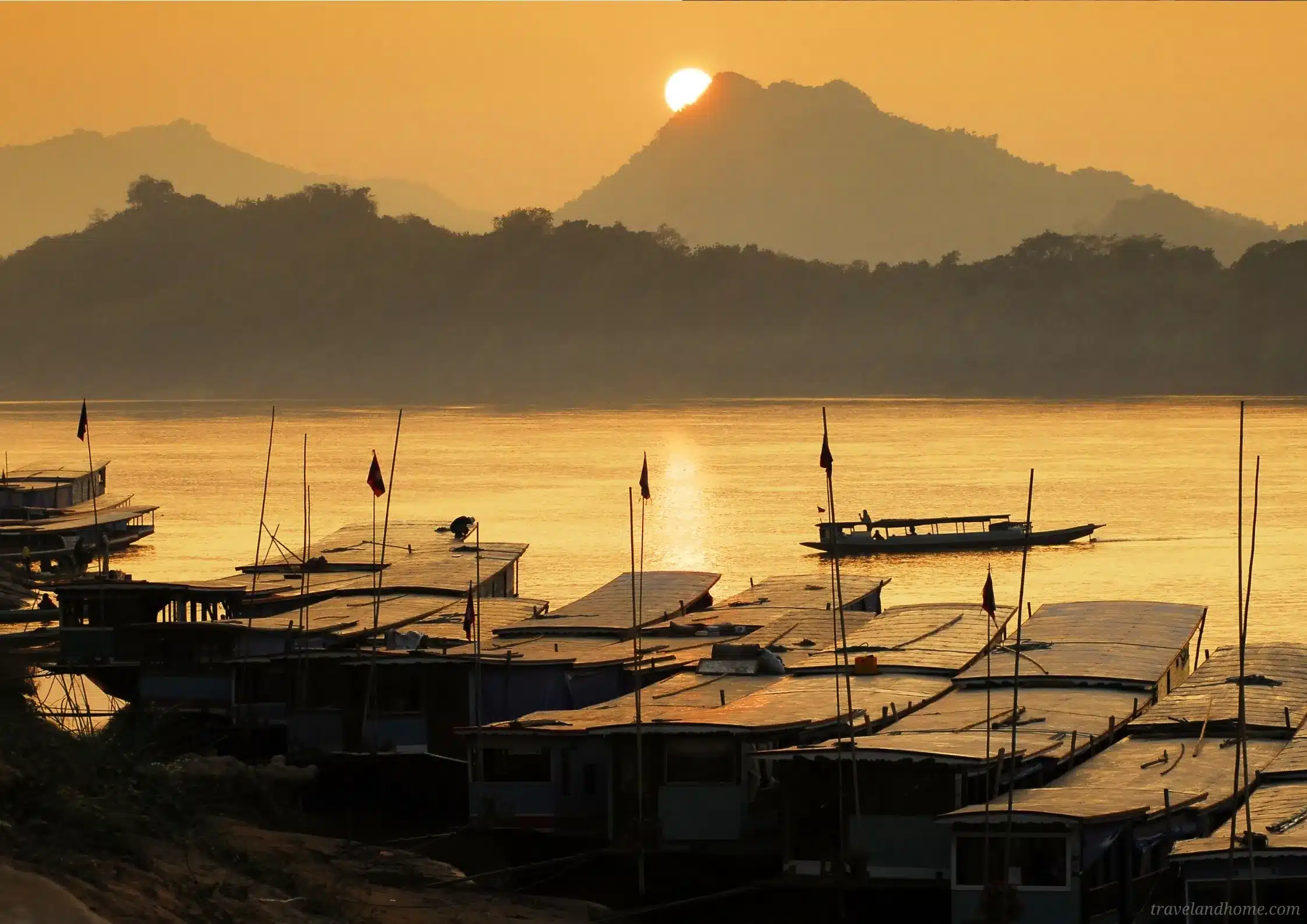
Luang Prabang’s culinary scene is a delicious blend of East and West. Start your day with a fresh baguette and Lao coffee before exploring the bustling Morning Market.
The morning market is where locals sell herbs, textiles, and sticky rice wrapped in banana leaves.
Later, wander the Night Market for crafts, textiles, and street food. Try lemongrass-stuffed fish or khao soi noodles at the night market.
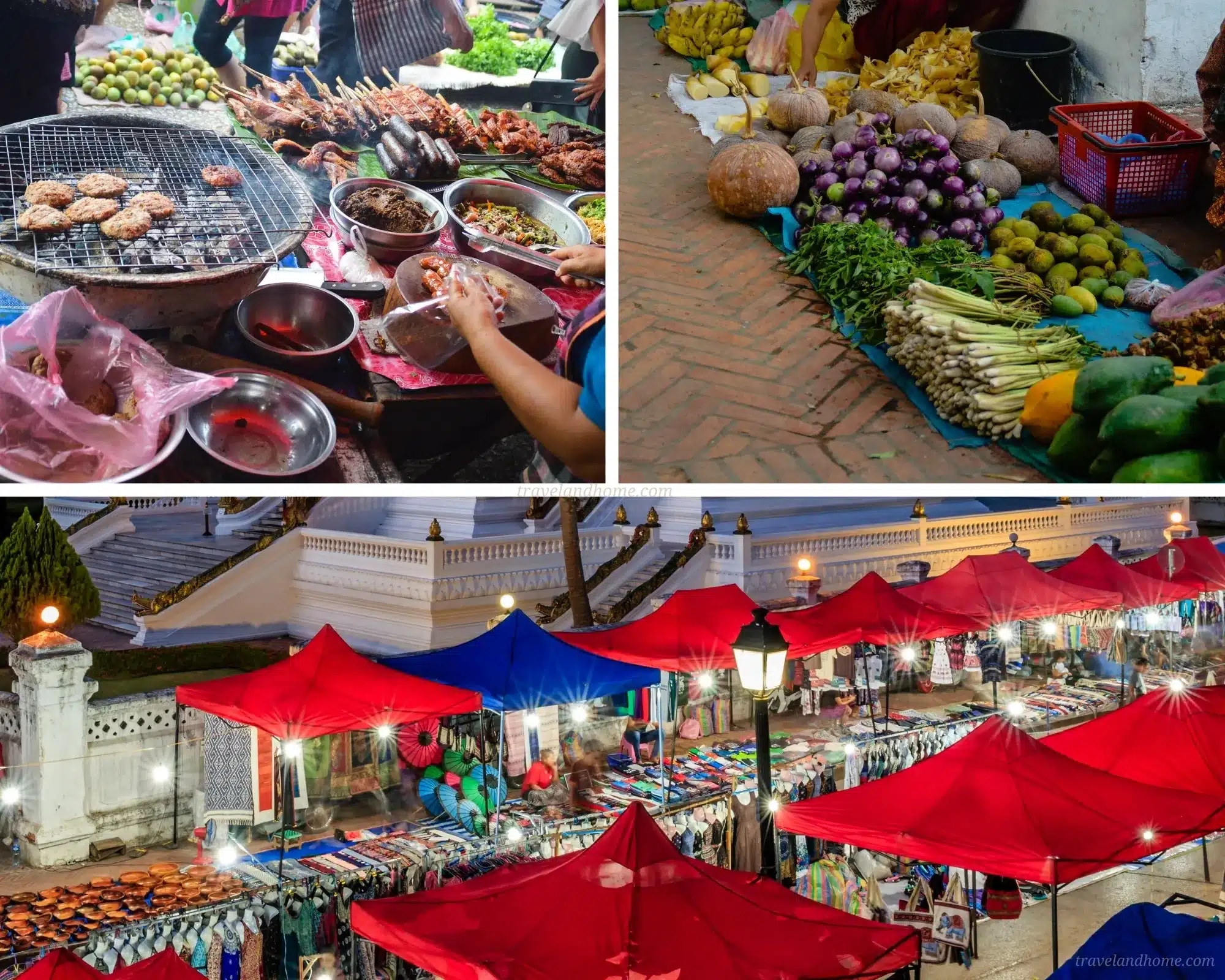
Together, they’re the perfect pairing of nature and spirituality, and skipping them would be like visiting Paris and ignoring the Eiffel Tower.
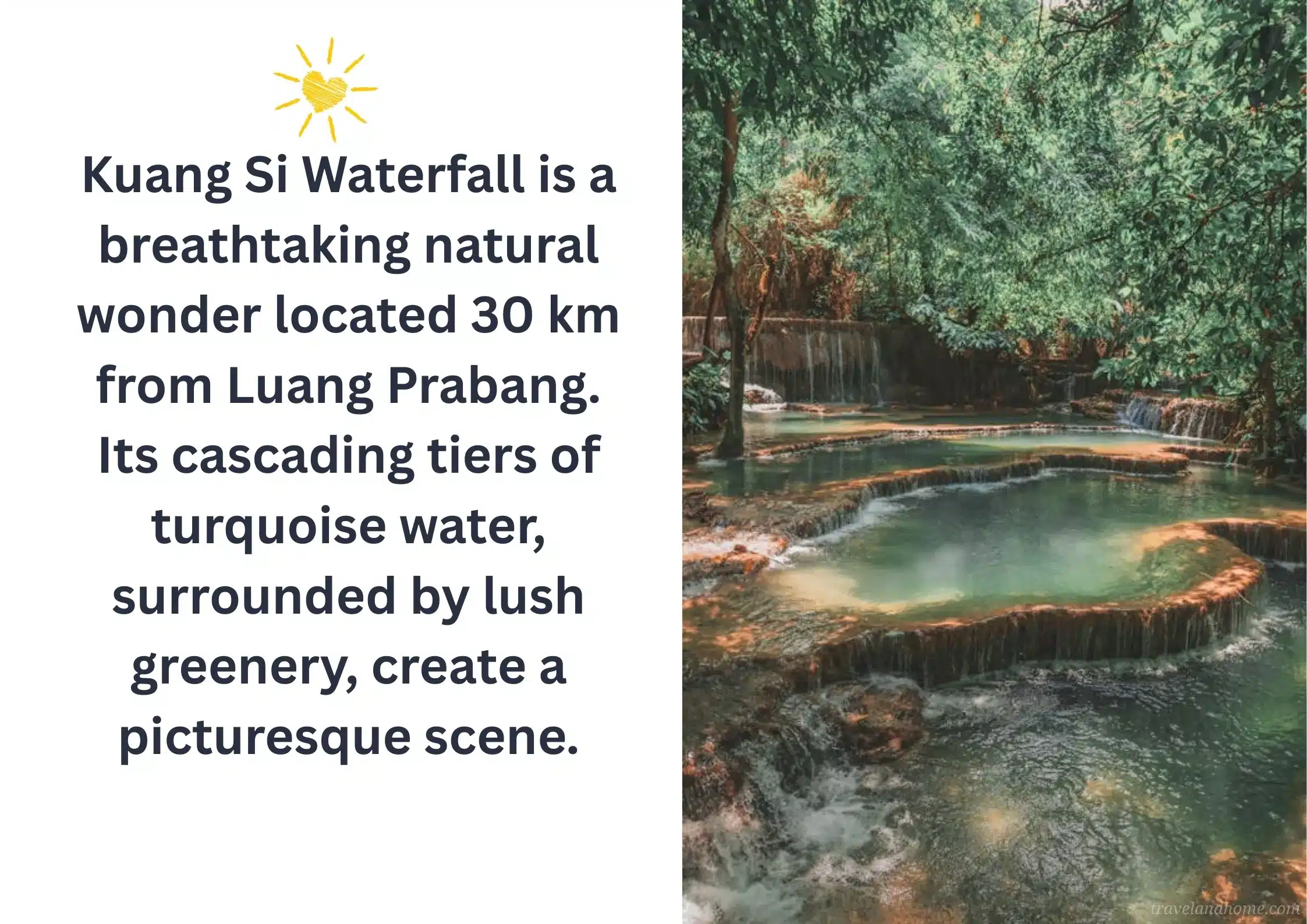
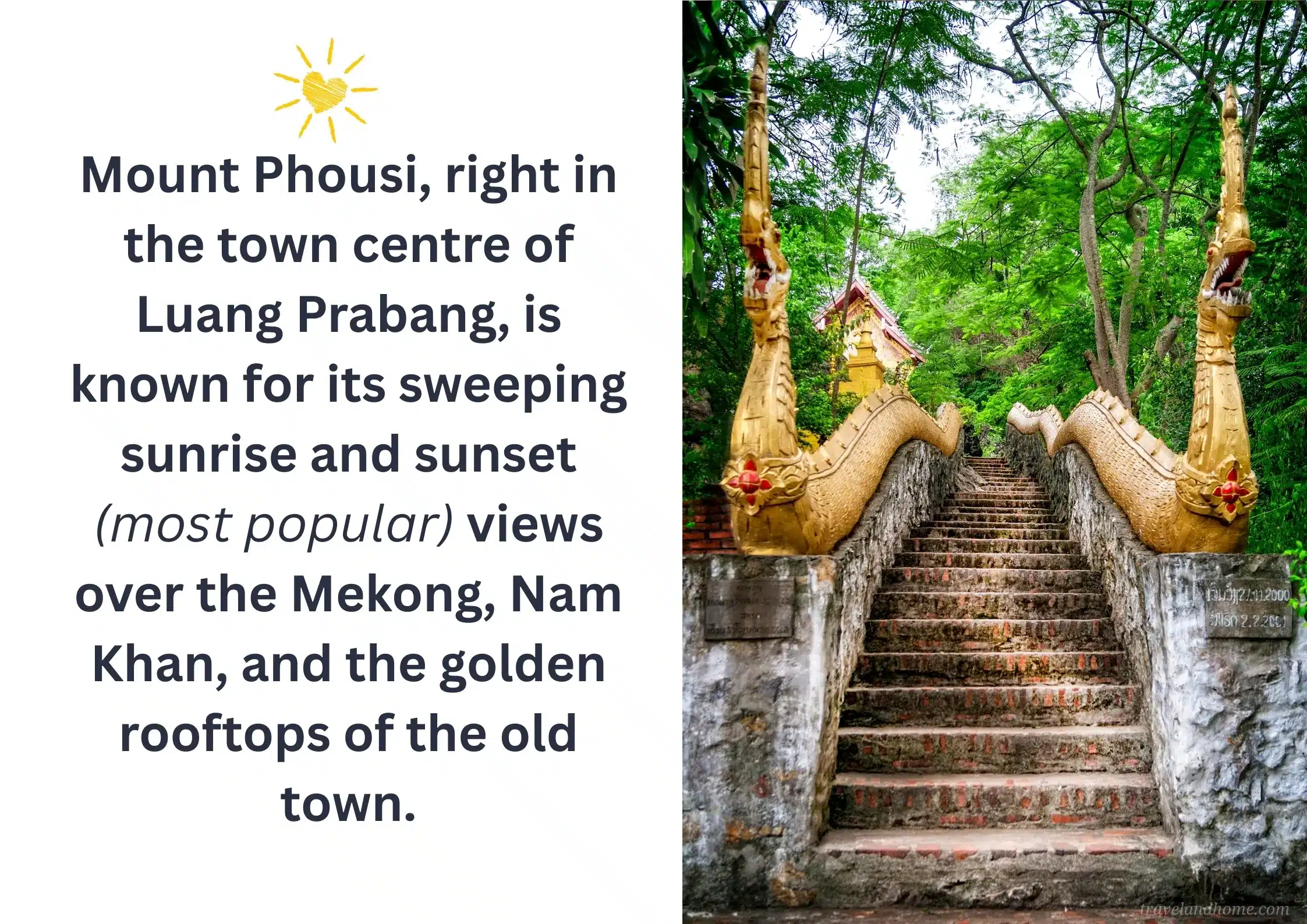
Luang Prabang isn’t just a destination—it’s a feeling. A gentle whisper of history, a golden glimmer of faith, and a warm embrace of culture. Whether you’re seeking spiritual renewal or architectural awe, this ancient town will leave you enchanted.
The ideal season is November to February, when the weather is cool, dry, and perfect for wandering temple grounds or sipping coffee by the Mekong.
Early morning: Catch the serene Tak Bat alms-giving ceremony with monks in saffron robes.
Golden hour: Head to the riverbanks for breathtaking sunsets and soft light on golden rooftops.
Luang Prabang’s old town is compact and walkable. Most visitors explore on foot or by bicycle, soaking in the slow pace and charming streets.
The official currency is the Lao Kip (LAK). While Kip is preferred, many places also accept Thai Baht and US Dollars—especially for visas and larger purchases.
Fly into Luang Prabang International Airport (LPQ), located just 4 km from the town center. It’s small but well-connected, with flights from Bangkok, Hanoi, Siem Reap, and Vientiane.
Here’s how to spot regulated, fixed-rate taxis at Luang Prabang Airport (LPQ):
Prepaid Taxi Counter: Before you exit the arrivals hall, look for the prepaid taxi desk. It’s usually near baggage claim or just past customs. You pay a fixed fare there, and they’ll assign you a licensed driver.
Official Taxi Area: Once outside, head to the designated taxi stand. Regulated taxis and tuk-tuks wait in this area, and they’re clearly marked. These vehicles are part of the airport’s authorized fleet.
Avoid Random Offers: If someone approaches you directly outside the terminal offering a ride, it’s best to decline unless they’re part of the prepaid system. Unregulated drivers may charge unpredictable rates.